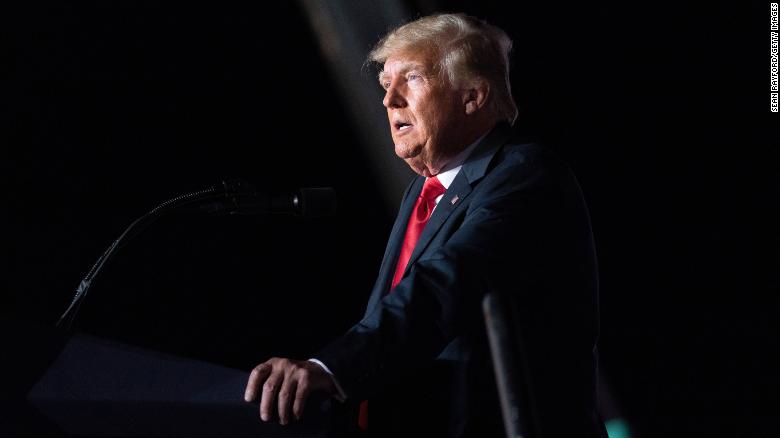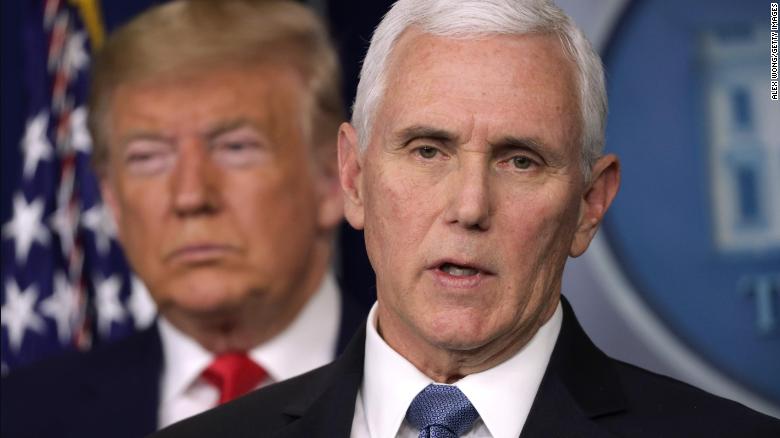Senate Judiciary Committee issues sweeping report detailing how Trump and a top DOJ lawyer attempted to overturn 2020 election
Merriam-Webster Definition of treason
"Washington (CNN) — The Senate Judiciary Committee on Thursday released a sweeping report about how former President Donald Trump and a top lawyer in the Justice Department attempted to overturn the 2020 presidential election.
Trump directly asked the Justice Department nine times to undermine the election result, and his chief of staff Mark Meadows broke administration policy by pressuring a Justice Department lawyer to investigate claims of election fraud, according to the report, which is based on witness interviews of top former Justice Department officials.
After the eight-month investigation, the findings highlight the relentlessness of Trump and some of his top advisers as they fixated on using the Justice Department to prop up false conspiracies of election fraud. The committee report, the most comprehensive account so far of Trump's efforts to overturn the election, described his conduct as an abuse of presidential power.
Appearing on CNN's "New Day" Thursday morning, Senate Judiciary Chairman Dick Durbin, an Illinois Democrat, said the US was a "half a step away from a constitutional crisis, a full-blown constitutional crisis" and explained the events unfolded in three phases.
"First phase, Trump goes to court. Loses every lawsuit, which claims there was voter fraud in the election. Next, he decides he has to take over the Department of Justice and the attorney general, and have the attorney general push this narrative on to the states to tell them to stop from sending in their Electoral College vote totals. When that failed -- and our report goes into graphic detail of the efforts that were made -- the third step was to turn the mob loose on the Capitol the day we were counting the ballots," Durbin said, referring to the January 6 riot.
DOJ lawyer was crucial player, Democrats say

The 400-page report by Senate Democrats, entitled "Subverting Justice," slams the actions of Clark, who they say became a crucial player in Trump's attempt to use the Justice Department for his political gain.
The Senate Judiciary Committee announced on Thursday they were referring him to the DC Bar for a review of his professional conduct, citing rules that bar attorneys from assisting in fraud and interfering with the administration of justice.
The committee said it has not yet made findings of possible criminality, since their investigation is not complete. Clark has not been charged with any crime, and an attorney for Clark didn't immediately respond to a request for comment.
Clark was not interviewed by the committee. Instead, top Justice Department officials described in interviews his and Trump's plans to overturn the election.
Clark had pushed Rosen and Richard Donoghue, then the second-in-command at the Justice Department, to use the Justice Department to announce election fraud investigations and ask state leaders in Georgia to appoint electors, potentially disregarding the certified popular vote. Clark began making the pitch in late December after speaking with Trump directly, the committee found.
The Senate committee wrote he may have had assistance from "lower-level allies" within the Justice Department and even attempted to bargain with Rosen on his plan, saying he would turn down a chance at taking Rosen's place if Rosen would agree to support his Georgia elector initiative.
"Clark's proposal to wield DOJ's power to override the already-certified popular vote reflected a stunning distortion of DOJ's authority: DOJ protects ballot access and ballot integrity, but has no role in determining which candidate won a particular election," the committee wrote.
Donoghue and Rosen both testified to the committee.
'Leave the rest to me'

The series of interactions between the President and Rosen and Donoghue began in mid-December with an Oval Office meeting, included several phone calls and continued through January 3.
In multiple calls, Trump claimed there was election fraud in Pennsylvania and Arizona -- both states he lost -- telling Rosen "people are saying" and asking the Justice Department to look into the rumors, according to the committee.
Trump also told the DOJ leadership, "You guys aren't following the internet the way I do," according to both Donoghue and Rosen.
The department hadn't found any widespread fraud in the election, and simultaneously Trump's campaign was filing lawsuits to throw out millions of votes in the swing states.
Trump had Rosen and Clark vie for the attorney general's job during the nearly three-hour meeting on January 3 before deciding not to replace Rosen with Clark, the report found. It also details how discussions about Clark's plan in Georgia became inextricably linked to talks about him replacing Rosen.
"According to Rosen, Trump opened the meeting by saying, 'One thing we know is you, Rosen, aren't going to do anything to overturn the election,'" the report says.
"Over the course of the next three hours, the group had what Donoghue called 'a wide-ranging conversation' focused on whether Trump should replace DOJ's leadership, install Clark in Rosen's place, and send Clark's proposed letter—and whether Clark was even qualified to assume the Acting Attorney General position. Rosen and Donoghue told us that by this point, Clark's proposed letter and his potential role as Acting Attorney General were intertwined," it adds.
Threat of mass resignations at Justice Department

The report goes on to note that at some point during the meeting, Donoghue and Assistant Attorney General for the Office of Legal Counsel Steve Engel made clear that there would be mass resignations at DOJ if Trump moved forward with replacing Rosen with Clark -- something he told the committee was "important context" for the then-president as he weighed his decision.
Donoghue and Rosen also recalled White House lawyers Cipollone and Patrick Philbin pushing back on the plan to replace Rosen with Clark, with Cipollone calling Clark's letter a "murder-suicide pact" and the two White House lawyers indicating that they would also resign, according to the report.
Despite the threat of mass resignations, Trump "continued for some time to entertain the idea of installing Clark in Rosen's place," the report notes. It also says that Donoghue told the panel that Trump did not reject Clark's course of action until "'very deep into the conversation,' within the final 15 minutes of the two- to three-hour meeting."
This story has been updated with additional findings from the report and reaction.
CNN's Chandelis Duster contributed to this report."
No comments:
Post a Comment